-
×
 Self-led IFS Training Recordings Feb 2024 By Loch Kelly
1 × $54,00
Self-led IFS Training Recordings Feb 2024 By Loch Kelly
1 × $54,00 -
×
 Adobe Muse Fundamentals By Brian Wood
1 × $5,00
Adobe Muse Fundamentals By Brian Wood
1 × $5,00 -
×
 Multifamily Strategy By Christian Osgood & Cody Davis
1 × $15,00
Multifamily Strategy By Christian Osgood & Cody Davis
1 × $15,00 -
×
 Stop Smoking Hypnosis - Ultimate Non-Smoker By Mark Patrick
1 × $15,00
Stop Smoking Hypnosis - Ultimate Non-Smoker By Mark Patrick
1 × $15,00 -
×
 Online Fitness And Nutrition Coach By Dala McDevitt - DLDNation
1 × $319,00
Online Fitness And Nutrition Coach By Dala McDevitt - DLDNation
1 × $319,00 -
×
 Land Your First Remote Job By Andrea Valeria
1 × $124,00
Land Your First Remote Job By Andrea Valeria
1 × $124,00 -
×
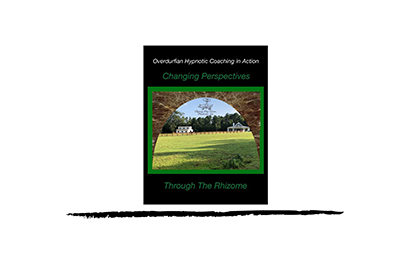 Changing Perspectives through the Rhizome By John Overdurf
1 × $23,00
Changing Perspectives through the Rhizome By John Overdurf
1 × $23,00 -
×
 Automate with Power Query - Recipes to Solve Business Data Challenges By Leila Gharani - XelPlus Academy
1 × $23,00
Automate with Power Query - Recipes to Solve Business Data Challenges By Leila Gharani - XelPlus Academy
1 × $23,00 -
×
 Ultimate Self Hypnosis System Live Training 2022 By Igor Ledochowski
1 × $39,00
Ultimate Self Hypnosis System Live Training 2022 By Igor Ledochowski
1 × $39,00 -
×
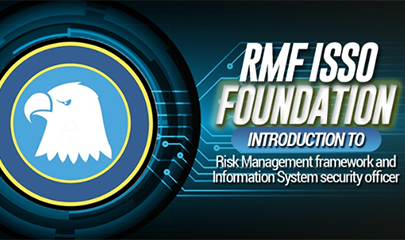 RMF ISSO Foundations Course By Bruce Brown
1 × $62,00
RMF ISSO Foundations Course By Bruce Brown
1 × $62,00 -
×
 Writing Great Chapters By Daniel David Wallace
1 × $23,00
Writing Great Chapters By Daniel David Wallace
1 × $23,00 -
×
 ProfileMate 2023 By Luke Maguire
1 × $15,00
ProfileMate 2023 By Luke Maguire
1 × $15,00 -
×
 The Black Death: New Lessons from Recent Research By Dorsey Armstrong
1 × $5,00
The Black Death: New Lessons from Recent Research By Dorsey Armstrong
1 × $5,00 -
×
 Advanced Cycles By Nick Santiago - InTheMoneyStocks
1 × $171,00
Advanced Cycles By Nick Santiago - InTheMoneyStocks
1 × $171,00 -
×
 Unfair Advantage Bundle By Everyday Spy
1 × $101,00
Unfair Advantage Bundle By Everyday Spy
1 × $101,00 -
×
 Freedom By Peter Crone
1 × $39,00
Freedom By Peter Crone
1 × $39,00 -
×
 FAST CLASS: How to Break the Habit of Self-Doubt and Build Real Confidence By Mel Robbins
1 × $5,00
FAST CLASS: How to Break the Habit of Self-Doubt and Build Real Confidence By Mel Robbins
1 × $5,00 -
×
 The Ultimate Project Finance Modeling Package By Kyle Chaning Pearce - Wall Street Prep
1 × $69,00
The Ultimate Project Finance Modeling Package By Kyle Chaning Pearce - Wall Street Prep
1 × $69,00 -
×
 100K Day Setup Elite Package By TG Watkins – Simpler Trading
1 × $69,00
100K Day Setup Elite Package By TG Watkins – Simpler Trading
1 × $69,00 -
×
 Quantum Awakening By Roy Martina
1 × $124,00
Quantum Awakening By Roy Martina
1 × $124,00 -
×
 White Phoenix’s The Smart (Money) Approach to Trading By Jayson Casper
1 × $39,00
White Phoenix’s The Smart (Money) Approach to Trading By Jayson Casper
1 × $39,00 -
×
 The Master Indicator 2023 By Lance Ippolito
1 × $101,00
The Master Indicator 2023 By Lance Ippolito
1 × $101,00 -
×
 Real Estate Financial Modeling By Aaron Hancock - Wall Street Prep
1 × $54,00
Real Estate Financial Modeling By Aaron Hancock - Wall Street Prep
1 × $54,00 -
×
 i2 Tantra 2023 (Integrated Intimacy) By Carl Stevens
1 × $139,00
i2 Tantra 2023 (Integrated Intimacy) By Carl Stevens
1 × $139,00 -
×
 Introduction to Embroidery By Lisa Shaffer
1 × $5,00
Introduction to Embroidery By Lisa Shaffer
1 × $5,00 -
×
 Raise Your Money Vibration Program By Awesome Aj Academy
1 × $39,00
Raise Your Money Vibration Program By Awesome Aj Academy
1 × $39,00 -
×
 Everyday Enlightenment By Gaia
1 × $5,00
Everyday Enlightenment By Gaia
1 × $5,00 -
×
 Native Peoples of North America By Daniel Cobb
1 × $5,00
Native Peoples of North America By Daniel Cobb
1 × $5,00 -
×
 The Spectrum and Contexts of Cultural Appropriation - Collection By Eric Hemenway & Shreena Niketa Gandhi
1 × $23,00
The Spectrum and Contexts of Cultural Appropriation - Collection By Eric Hemenway & Shreena Niketa Gandhi
1 × $23,00 -
×
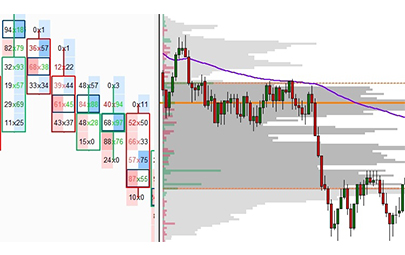 Day Trading with Volume Profile and Orderflow By Price Action Volume Trader
1 × $46,00
Day Trading with Volume Profile and Orderflow By Price Action Volume Trader
1 × $46,00 -
×
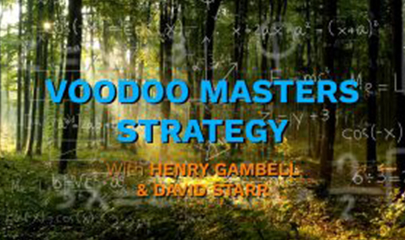 Voodoo Masters Strategy ELITE By David Starr & Henry Gambell - Simpler Trading
1 × $23,00
Voodoo Masters Strategy ELITE By David Starr & Henry Gambell - Simpler Trading
1 × $23,00 -
×
 Secrets to Financial Success By John Demartini
1 × $46,00
Secrets to Financial Success By John Demartini
1 × $46,00 -
×
 Sacred Success Coaching Method By Eden Carpenter
1 × $139,00
Sacred Success Coaching Method By Eden Carpenter
1 × $139,00 -
×
 Activate Your Genius By Unlock Your Design Academy
1 × $39,00
Activate Your Genius By Unlock Your Design Academy
1 × $39,00 -
×
 Rocket Ship Buy - Short Signal By Gareth Soloway - InTheMoneyStocks
1 × $31,00
Rocket Ship Buy - Short Signal By Gareth Soloway - InTheMoneyStocks
1 × $31,00 -
×
 The Art of VFX & Graphics for Editors Complete Bundle By Film Editing Pro
1 × $31,00
The Art of VFX & Graphics for Editors Complete Bundle By Film Editing Pro
1 × $31,00 -
×
 E-Commerce Copywriting: The Key to Conversion By Carrie French
1 × $5,00
E-Commerce Copywriting: The Key to Conversion By Carrie French
1 × $5,00 -
×
 The Year of Manifestation By Shefali Tsabary
1 × $233,00
The Year of Manifestation By Shefali Tsabary
1 × $233,00 -
×
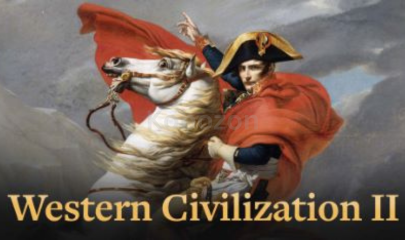 Foundations of Western Civilization II: A History of the Modern Western World By Robert Bucholz
1 × $5,00
Foundations of Western Civilization II: A History of the Modern Western World By Robert Bucholz
1 × $5,00 -
×
 The Demartini Digital Library By John Demartini
1 × $233,00
The Demartini Digital Library By John Demartini
1 × $233,00 -
×
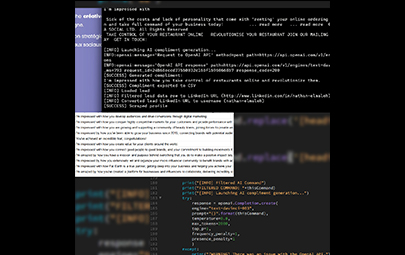 Icebreaker ZERO - Personalize your Outreach at UNLIMITED Scale By Kevin Sozanski
1 × $46,00
Icebreaker ZERO - Personalize your Outreach at UNLIMITED Scale By Kevin Sozanski
1 × $46,00 -
×
 8D Lip Design eLearning Fillers Course By Tim Pearce
1 × $241,00
8D Lip Design eLearning Fillers Course By Tim Pearce
1 × $241,00 -
×
 Perfect Eye Contact II – She Looked Now What by Sean Messenger
1 × $5,00
Perfect Eye Contact II – She Looked Now What by Sean Messenger
1 × $5,00 -
×
 Mentoring Program Weekly Calls and Teleconference by Cory Skyy
1 × $5,00
Mentoring Program Weekly Calls and Teleconference by Cory Skyy
1 × $5,00 -
×
 Using Lightroom to Fix Bad Lighting By Matt Kloskowski
1 × $5,00
Using Lightroom to Fix Bad Lighting By Matt Kloskowski
1 × $5,00 -
×
 The Full Package 8 Courses By Inthemoneystocks
1 × $443,00
The Full Package 8 Courses By Inthemoneystocks
1 × $443,00 -
×
 Become a Professional Python Programmer Bundle By Stone River eLearning
1 × $78,00
Become a Professional Python Programmer Bundle By Stone River eLearning
1 × $78,00 -
×
 Books That Matter: The History of the Decline and Fall of the Roman Empire By Leo Damrosch
1 × $5,00
Books That Matter: The History of the Decline and Fall of the Roman Empire By Leo Damrosch
1 × $5,00 -
×
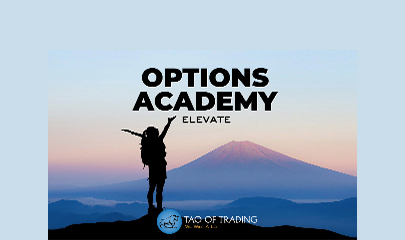 Options Academy Elevate By Simon Ree - Tao of Trading
1 × $109,00
Options Academy Elevate By Simon Ree - Tao of Trading
1 × $109,00 -
×
 Four Elements Manifestation By Brian Osborne
1 × $124,00
Four Elements Manifestation By Brian Osborne
1 × $124,00
The US and the Middle East: 1914 to 9/11 By Salim Yaqub
$239,00 $5,00
The United States and the Middle East: 1914 to 9/11 – Digital Download!
Let’s embark on a captivating adventure to uncover remarkable insights that spark your curiosity and elevate your understanding

The US and the Middle East: 1914 to 9/11 By Salim Yaqub
Overview
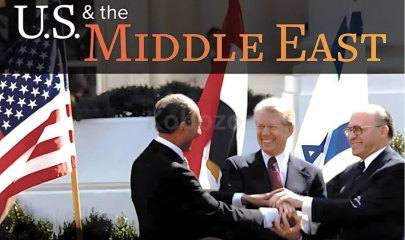
The United States and the Middle East: 1914 to 9/11
The intricate tapestry of U.S. involvement in the Middle East is woven with complex threads of history, politics, and culture. From the tumultuous landscapes of World War I to the shocking events of September 11, 2001, Salim Yaqub’s comprehensive lecture series, “The United States and the Middle East: 1914 to 9/11,” offers an enlightening journey through this multifaceted relationship. Spanning over 12 hours and divided into 24 half-hour lectures, Yaqub navigates the historical milestones that have shaped both regions, providing listeners with the tools to comprehend modern conflicts and U.S. foreign policy decisions. In this review, we will delve into the key themes, notable events, and salient figures that populate this course, using metaphors, comparisons, and emotional expressions to bring the historical narrative to life.
Overview of the Course Structure
Lecture Format and Accessibility
The course presents a well-structured series of lectures designed to accommodate an audience eager for clarity and depth. Each half-hour segment allows for digestible learning, making the material accessible even for those without a background in history. The methodical pacing invites listeners to reflect and absorb complex geopolitical dynamics without feeling overwhelmed. Yaqub’s clear delivery facilitates engagement, allowing students to transition from one topic to another seamlessly.
Key Themes Explored
The content systematically uncovers pivotal themes, such as the oil politics that have fueled U.S. interests in the Middle East and the American support for various governments. By framing these themes within the broader historical context, Professor Yaqub effectively illustrates the motivations driving U.S. policy decisions. This course is not merely an exposition of facts; it is a quest for understanding the motivations, emotions, and conflicts that have historically defined relationships between nations.
Notable Figures and Events
A significant aspect of Yaqub’s lectures is his focus on notable historical figures, such as presidents and diplomats whose policies and decisions have significantly impacted U.S.-Middle East relations. The nuanced portrayal of figures like Henry Kissinger and George H.W. Bush sheds light on their strategic choices and the consequences that followed. This detailed examination of individuals provides an emotional lens through which listeners can appreciate the human dimension of historical events.
Detailed Examination of Historical Events
World War I and Its Aftermath
The course begins with World War I, a watershed moment signaling the onset of U.S. involvement in the Middle East. The disintegration of the Ottoman Empire paved the way for increased American engagement in the region. Yaqub elaborates on the Sykes-Picot Agreement, which exemplified the complexities of territorial divisions that would haunt the Middle East for decades.
The Sykes-Picot Agreement: A Catalyst for Conflict
- Year: 1916
- Countries Involved: United Kingdom, France, Russia
- Outcome: Division of Ottoman territories into spheres of influence
The lecture highlights how such arrangements did not take local populations into account, thus sowing the seeds of resentment and nationalism. The aftermath of World War I created a landscape filled with fractious states and competing interests – a dilemma that has persisted throughout the 20th century.
The Cold War’s Influence
As the world transitioned into the Cold War, U.S. foreign policy underwent a dramatic shift toward containment, reflected in its dealings with Middle Eastern nations. The Arab-Israeli conflict emerged as a key turning point that would signify the evolving American approach.
Arab-Israeli Conflict: A Geopolitical Chess Game
- Key Figures: David Ben-Gurion, Gamal Abdel Nasser
- Significant Events: The establishment of Israel (1948), Six-Day War (1967)
The course narrates how American backing of Israel created ripple effects that affected regional alliances and perceptions. Yaqub emphasizes the intricate dance of diplomacy and warfare, paralleling the global chess game that defined U.S. strategies throughout the Cold War.
The Role of Oil in U.S.-Middle East Relations
The Quest for Energy Security
One of the most enduring themes throughout the course is the role of oil in shaping U.S. strategy in the Middle East. The discovery of vast oil reserves transformed the region into a focal point of American foreign policy. Salim Yaqub outlines how oil dependence tethered the U.S. to various regimes, complicating alliances and ethical considerations.
Oil Politics: Historical Milestones
- Key Events: Nationalization of oil by Iran in 1951, The 1973 Oil Crisis
- Impact: Accelerated U.S. military and political involvement
The tension created by oil politics not only influenced international relationships but also had profound implications for domestic policy-making in the U.S. and enduring challenges faced by the nations in the region.
Reassessment of Contemporary Issues
Understanding Modern Conflicts
As the course nears September 11, 2001, Yaqub artfully connects historical patterns to modern controversies. The ideologies and grievances rooted in earlier foreign policies echo through contemporary issues facing the Middle East today.
Post-9/11 Landscape: A Legacy of Misunderstanding
- Events: U.S. invasions of Afghanistan (2001) and Iraq (2003)
- Causal Factors: Historical grievances, oil, terrorism
The tragic events of 9/11 serve as a culmination of the historical trends dissected throughout the lectures, prompting a critical reflection on how past actions influenced current geopolitical realities. Yaqub masterfully delineates these connections, urging listeners to understand the complexity rather than simplifying motivations to mere acts of terrorism.
Critical Reception and Impact
Positive Feedback from Listeners
Listeners have widely praised the course for its rigorous scholarship and fact-based approach. Many have expressed satisfaction with the course’s unbiased tone, branding it a vital resource for anyone interested in the historical underpinnings of U.S.-Middle East relations.
Notable Endorsements
- Historian’s Review: “A powerful introduction to the tangled history of U.S. involvements.”
- Academic Recognition: Recommended by university history departments as supplementary material.
The depth of information presented, coupled with Yaqub’s engaging style, positions this lecture series as an essential starting point for anyone eager to comprehend the complex dance of diplomacy, conflict, and cultural exchange in the region.
Conclusion
In “The United States and the Middle East: 1914 to 9/11,” Salim Yaqub provides an illuminating and comprehensive examination of a relationship characterized by complexity, conflict, and interdependence. With a blend of detailed historical analysis, personal narratives, and critical insights, the course serves not only as a historical overview but as a clarion call for understanding the roots of current geopolitical dilemmas. The meticulous exploration of significant events, coupled with an emphasis on the human elements involved, reflects Yaqub’s commitment to deepening our understanding of a pivotal aspect of world history. For those seeking to unravel the intricate connections between the past and present, this lecture series is an invaluable resource that warrants attentive listening and thoughtful reflection.
Frequently Asked Questions:
Innovation in Business Models: We use a group purchase approach that enables users to split expenses and get discounted access to well-liked courses. Despite worries regarding distribution strategies from content creators, this strategy helps people with low incomes.
Legal Aspects to Take into Account: Our operations’ legality entails several intricate considerations. There are no explicit resale restrictions mentioned at the time of purchase, even though we do not have the course developers’ express consent to redistribute their content. This uncertainty gives us the chance to offer reasonably priced instructional materials.
Quality Control: We make certain that every course resource we buy is the exact same as what the authors themselves provide. It’s crucial to realize, nevertheless, that we are not authorized suppliers. Therefore, the following are not included in our offerings: – Live coaching sessions or calls with the course author.
– Entry to groups or portals that are only available to authors.
– Participation in closed forums.
– Straightforward email assistance from the writer or their group.
Our goal is to lower the barrier to education by providing these courses on our own, without the official channels’ premium services. We value your comprehension of our distinct methodology.
Be the first to review “The US and the Middle East: 1914 to 9/11 By Salim Yaqub” Cancel reply
You must be logged in to post a review.

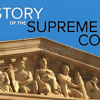
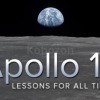














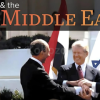
Reviews
There are no reviews yet.